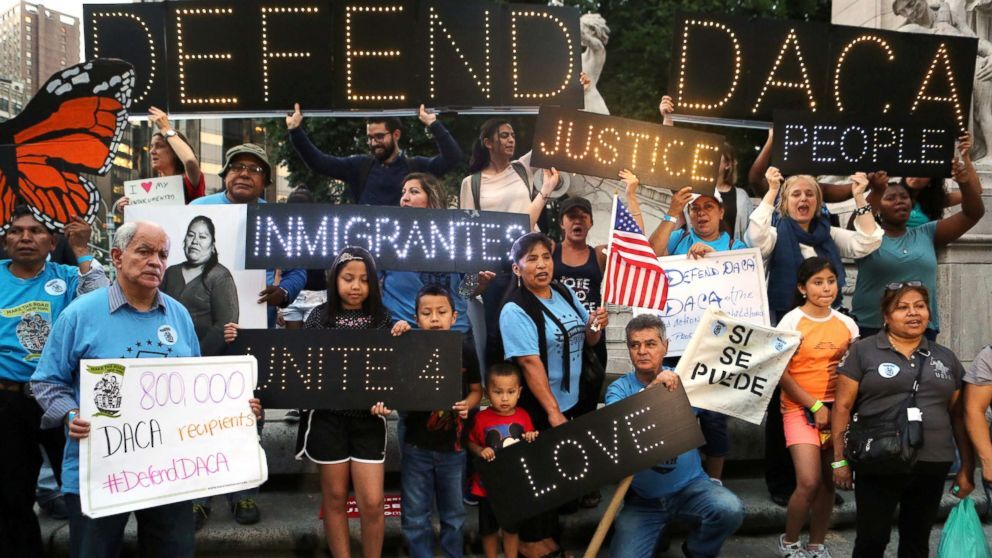If you’ve been following the news, you’ve probably heard about the 5th Circuit’s DACA mandate.
It’s a big deal, and it’s got many people talking.
But what does it mean?
And how will it impact DACA recipients and their families?
Let’s break it down in plain English so you can stay informed without getting lost in legal jargon.
Table of Contents
- What Is the 5th Circuit’s DACA Mandate?
- Why Is This Happening Now?
- How Will This Affect Current DACA Recipients?
- What Does This Mean for New DACA Applications?
- What Are the Legal Challenges?
- What Can DACA Recipients Do Right Now?
- FAQs About the 5th Circuit’s DACA Mandate
- The Bigger Picture: What’s Next for DACA?
What Is the 5th Circuit’s DACA Mandate?
The 5th Circuit’s DACA mandate is a court ruling that could change the future of the Deferred Action for Childhood Arrivals (DACA) program.
DACA has been a lifeline for over 600,000 young immigrants, often called “Dreamers,” who were brought to the U.S. as children.
It allows them to work, study, and live without the constant fear of deportation.
However, the 5th Circuit Court of Appeals has ruled that DACA is unlawful.
This doesn’t mean DACA is over—yet.
But it does mean the program is on shaky ground.
Why Is This Happening Now?
This isn’t the first time DACA has been in the spotlight.
The program has faced legal challenges for years.
The latest ruling from the 5th Circuit is part of an ongoing battle.
Here’s the timeline:
- 2012: DACA is created by the Obama administration.
- 2017: The Trump administration tries to end DACA.
- 2020: The Supreme Court blocks Trump’s attempt, calling it “arbitrary and capricious.”
- 2021: A Texas judge rules DACA is illegal, but allows current recipients to keep their status.
- 2022: The 5th Circuit upholds the Texas ruling, sending the case back to the lower court.
Now, the lower court is expected to issue a final ruling soon.
And it could mean the end of DACA as we know it.
How Will This Affect Current DACA Recipients?
If you’re a current DACA recipient, you’re probably wondering, “What happened to me?”
Here’s the good news:
- Your current status is safe—for now.
- You can still renew your DACA status.
- You’ll keep your work permit and protection from deportation.
But there’s a catch.
The court could rule that no new DACA applications or renewals can be processed.
That means if your status expires, you might not be able to renew it.
What Does This Mean for New DACA Applications?
If you’re hoping to apply for DACA for the first time, the situation is more complicated.
Right now, new applications are on hold.
The 5th Circuit’s ruling has put a freeze on new approvals.
This is a huge blow for young immigrants who are counting on DACA to build a future in the U.S.
Without DACA, they can’t work legally, get a driver’s license, or access many opportunities.
What Are the Legal Challenges?
The legal battle over DACA is far from over.
Here’s what’s happening behind the scenes:
- The Biden administration is fighting to protect DACA.
- Advocacy groups are pushing for a permanent solution, like a path to citizenship.
- The case could eventually go back to the Supreme Court.
But legal battles take time.
And for DACA recipients, time is running out.
What Can DACA Recipients Do Right Now?
If you’re a DACA recipient, here’s what you need to do:
- Renew Your DACA Status ASAP
Don’t wait until the last minute.
Renew your status as soon as you’re eligible. - Stay Informed
Follow trusted sources like United We Dream or the National Immigration Law Center for updates. - Connect with Advocacy Groups
Organizations like United We Dream and FWD.us are fighting for your rights.
They can provide resources and support. - Plan for the Worst
While we hope for the best, it’s smart to have a backup plan.
Talk to an immigration lawyer about your options.
FAQs About the 5th Circuit’s DACA Mandate
1. Can I still renew my DACA status?
Yes, for now.
But don’t delay—renew as soon as possible.
2. What happens if the court ends DACA?
Current recipients will keep their status until it expires.
But no new applications or renewals will be processed.
3. Can I apply for DACA for the first time?
Not right now.
New applications are on hold due to the court ruling.
4. Will DACA recipients be deported?
No.
DACA recipients are not a priority for deportation.
But losing DACA could make life much harder.
5. What’s the long-term solution?
The only permanent solution is legislation from Congress.
Advocates are pushing for a path to citizenship for Dreamers.
The Bigger Picture: What’s Next for DACA?
The 5th Circuit’s DACA mandate is a wake-up call.
It shows how fragile the program is—and why we need a permanent solution.
Here’s what’s at stake:
- 600,000+ lives: DACA recipients are students, workers, and parents.
- The economy: DACA recipients contribute billions to the U.S. economy each year.
- The American Dream: DACA is about giving people a fair shot at success.
The fight isn’t over.
But it’s going to take all of us to protect DACA and push for real change.
Final Thoughts
The 5th Circuit’s DACA mandate is a big deal.
It’s a reminder that DACA is still under threat.
But it’s also a call to action.
If you’re a DACA recipient, stay informed and take steps to protect your status.
If you’re an ally, speak up and support organizations fighting for Dreamers.
Together, we can make sure that the promise of DACA isn’t just a dream—it’s a reality.

